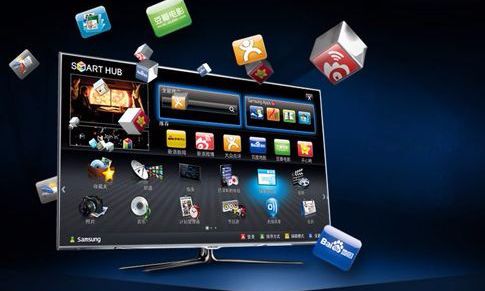OFweek smart home network news: an air-to-air mutual shred war, opened the easy to the secret to the crash at any time, Le Le as the cruel status of the capital chain breaks at any time is once again focused on the media flash.
Pulling time back to five years ago in September, LeTV shouted out the slogan of "subversion" and declared war on traditional TV brands. At the moment, the huge ecological empire that uses LeTV as a fulcrum is faltering, and the huge funding black hole continues to expand. The prospect of LeTV is therefore confusing.
Internet TV has reached its winter
LeTV's current capital crisis is a microcosm of the entire Internet TV industry. After entering the year 2017, Xiaomi and LeTV have successively increased the price of Internet TV on the grounds of rising supply prices. It now appears that price increases are a signal that Internet television has reached its winter.
Compared with the prosperous years when capital was flocking to the Internet TV industry five years ago, Internet TV in today's domestic market is like a decline. In addition to Xiaomi and LeTV still insisting on, iQIYI, Youku and other giants have quietly withdrawn from the battlefield. Some people attributed the financial difficulties of LeTV to vehicle repair. In fact, LeTV, which continues to suffer losses, drastically overruns the wealth value of LeTV's ecology, as LeTV did not integrate into the system of LeEre Empire.
Brutal facts prove that the negative profit of hardware promoted by LeTV is a failure to achieve profitability by members. Five years ago, after the release of LeTV, there were once people in the industry who had calculated an account. LeTV was priced at 6,999 yuan for a 60-inch super TV, and the price of the same-size smart TV was close to ten thousand yuan. Taking into account the low profits of LeTV Super TV and the cost disadvantages associated with the traditional TV brands at the manufacturing level, LeTV Super TVs have to lose thousands of dollars each.
Subsequently, LeTV launched the strategy of charging members to send super TVs, making the idea of ​​buying 0 yuan Internet TV from the idea into reality, and fulfilling the promise of “subversionâ€. At that time, LeTV did not rely on hardware to make profits, and the profitable business model achieved through membership fees and advertisements was not proven. Similarly, Xiaomi also uses cheap strategies to compete with traditional TV brands. With the awakening of traditional TV brands, the price war surrounding Internet TV is also one after another.
It now appears that LeTV and Xiaomi’s Internet TV business model has been very difficult to sustain. Price increases have been a signal that LeTV and Xiaomi have given up the hardware free model. For many years of competition, the sales of Internet TVs by Xiaomi and LeTV are still quite different from traditional TV brands such as Hisense, TCL and Changhong. In spite of this, LeTV’s funding gap is already very large, which is undoubtedly a negation of LeTV’s super TV business model.

Where is Internet TV lost?
Although Xiaomi TV still sticks to the hardware free business model, Xiaomi is also trying to transform itself in light of the strategic actions of Xiaomi TV's price hikes and content charging adjustments. At this point, the cutting-edge of Internet TV represented by music was lost on the starting line. With the support of massive content and the advantage of low prices, why does Internet TV lose?
From the perspective of consumers, Internet TV has lost its experience. Initially, Internet TV promised many promises in order to seize the market, but in the end it did not honor it. To give a simple example, iQiyi launched the Internet TV + TV + with TCL and promised to send lifelong members to the conference. After more than two years, TV+ members have failed and many consumers have no complaints.
In addition, in terms of content, Internet TV represented by LeTV and Xiaomi did not form a competitive pattern with traditional TV. As we all know, the traditional TV brand smart TV, video content mostly from radio and television. Forced by LeTV and Xiaomi's competitive pressure, TCL chose to form an alliance with iQiyi, and Changhong and Skyworth also chose the content platform with video license. Since the contents of domestic IPTV platforms are all from TV stations or TV institutions, it is very difficult for Internet TV to open up the gap in terms of content.
There is no difference in content. After the competition, the price of Internet TV is gradually increasing, and the gap with traditional TV brands is gradually disappearing. What really disappointed consumers with Internet TV is an increasingly flooded advertisement. Initially, there was no advertisement on the content broadcast on Internet TV, and there was no advertisement on the startup. Now, LeTV and Xiaomi’s Internet TV startup will have advertisements of varying lengths of time, and each time they play content, there will be advertisements, the longest or even a few minutes. In response, many users claim that Internet TV advertising is more overbearing than TV stations.
To remove ads, users can only purchase members. LeTV's membership is 980 yuan a year, which is more expensive than traditional cable TV. More importantly, even if a user purchases a member, the boot advertisement of Internet TV cannot be eliminated. Strong push ads seriously affect the user experience.
Like drippling taxis and shared bicycles, Internet TV first circulates prices to users, then raises prices, and pushes advertisements. This is what makes Internet TV experience worse and worse. Right now, Internet TV has neither price advantage nor content differentiation, and it is inevitable that the market will be eliminated.
After rounds of competition, the advantages of Internet TV in terms of cost, content, and experience have already disappeared. Like traditional TV brands, Internet TV also needs to be profitable. After Xiaomi and Leshi have verified that the hardware zero-profit model is difficult to sustain long-term development, how should Internet TV go? Undoubtedly, profits are also a mountain for Internet TV brands.
ZGAR Vape Device 5.0
ZGAR electronic cigarette uses high-tech R&D, food grade disposable pod device and high-quality raw material. All package designs are Original IP. Our designer team is from Hong Kong. We have very high requirements for product quality, flavors taste and packaging design. The E-liquid is imported, materials are food grade, and assembly plant is medical-grade dust-free workshops.
From production to packaging, the whole system of tracking, efficient and orderly process, achieving daily efficient output. We pay attention to the details of each process control. The first class dust-free production workshop has passed the GMP food and drug production standard certification, ensuring quality and safety. We choose the products with a traceability system, which can not only effectively track and trace all kinds of data, but also ensure good product quality.
We offer best price, high quality Vape Device, E-Cigarette Vape Pen, Disposable Device Vape,Vape Pen Atomizer, Electronic cigarette to all over the world.
Much Better Vaping Experience!


E-Cigarette Vape Pen,Disposable Device Vape,Vape Pen Atomizer,Latest Disposable E-Cigarette OEM vape pen,OEM electronic cigarette
Shenzhen WeiKa Technology Co.,Ltd. , https://www.szvape-pen.com